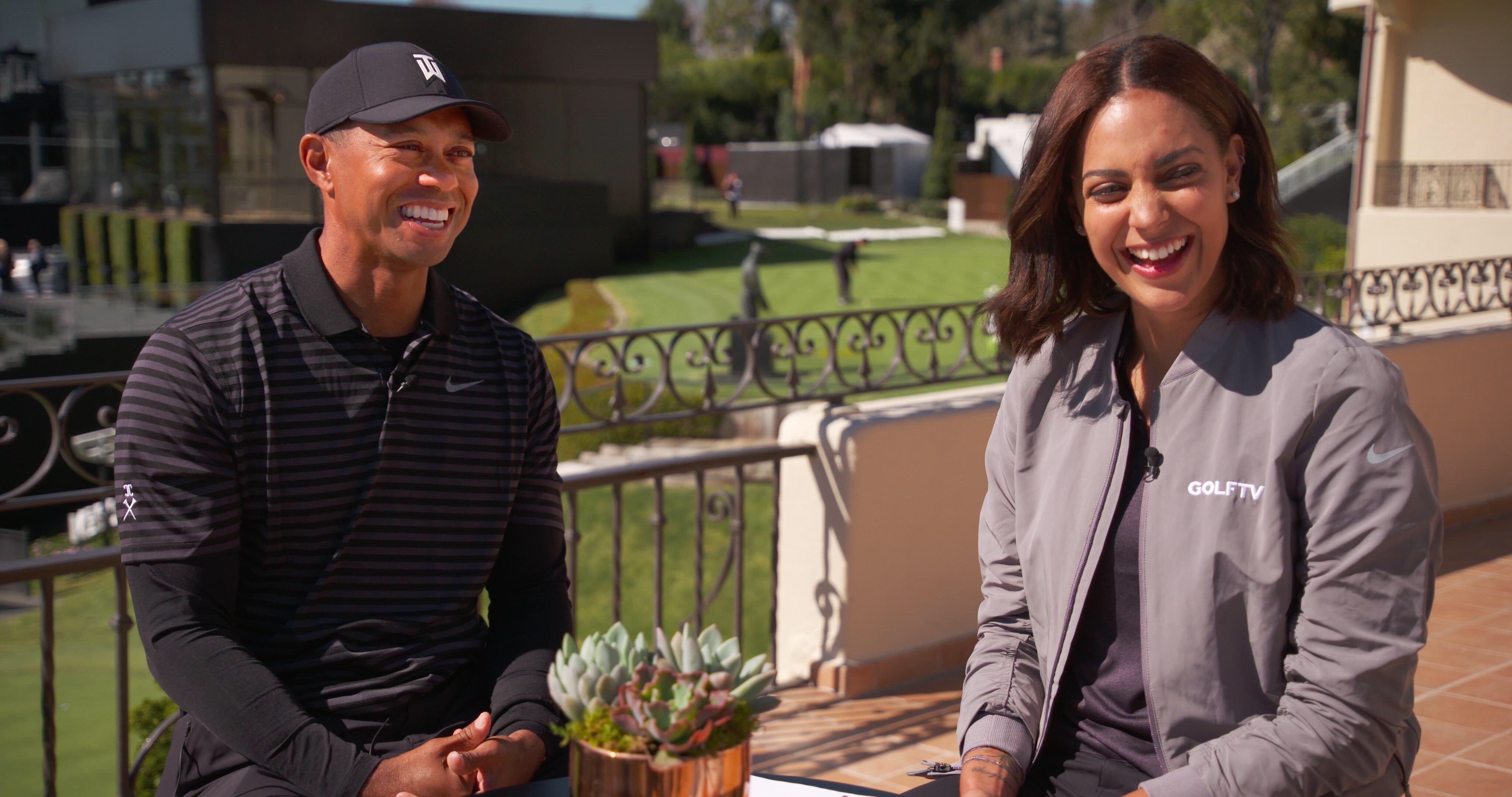Golf’s Media Deals May Become Par for TV Sports

The smarter way to stay on top of broadcasting and cable industry. Sign up below
You are now subscribed
Your newsletter sign-up was successful
Why This Matters: Media companies are creating more ways to engage viewers and generate revenue as digital competitors eye sports rights.
In a changing TV world, sports remains a hole in one.
As viewing fragments and shifts to digital and on-demand platforms, sports content retains enough muscle to draw large, live audiences that networks can turn into dollars the old-fashioned way: by selling commercials and wringing subscriber fees from cable operators.
The TV sports business is changing, too. Rights agreements are becoming more complicated, with negotiations covering streaming rights, competition from digital companies and, increasingly, the league’s own company and and media partners.
The ancient game of golf might provide a glimpse into the future. Two media companies — Comcast and Discovery — are taking big swings on and off the course, based on the notion that there is a big sports media business beyond the small screen.
Related: ESPN Turns Events Into Fundraisers for Cancer
Swings Beyond TV
The smarter way to stay on top of broadcasting and cable industry. Sign up below
Comcast’s NBCUniversal unit owns Golf Channel and under NBCU, Golf has been driving its business well beyond anything its founder, the legendary Arnold Palmer, could have dreamed of.
Last month, NBC Sports Group introduced GolfPass, a digital subscription product offering a variety of benefits. For $9.99 a month or $99 per year, subscribers get opportunities to play a round of golf for no additional charge at one of 7,000 courses a month, learn from on-demand instructional videos, watch a library of tournament action, Golf Channel shows and original programming, travel at a discount to top golf resorts and buy merchandise, with free shipping. A dozen TaylorMade golf balls are included.
Golfer Rory McIlroy is NBC’s partner in GolfPass. TaylorMade is a launch sponsor.
Golf Channel already has businesses offering tee times, instructional videos and travel. Using GolfPass, fans can access these services and watch foursomes and holes they can’t see on linear TV. Someday fans may be able to follow their favorite player throughout a tournament.

“We’re much more than a television business now,” NBC Sports Group president of golf Mike McCarley said. “Comcast has been investing in these businesses for more than a decade. A lot of it is acquisitions or investing in software and technology to ultimately help the golfer enjoy the experience.”
It is believed that NBC Golf generates about 20% of its revenue from its lifestyle businesses.
Golf Channel was one of the few cable networks that showed ratings growth last year, Kagan analyst Derek Baine noted. The network generated $557 million in 2018, according to Kagan, though it was up only 2% because cord-cutting reduced affiliate fees.
Discovery Inc. in June said it was paying $2 billion for the global rights outside the U.S. to the PGA Tour across all platforms through 2030. Discovery said it was planning to pay an additional $20 million to $30 million during each of the first three years of the deal for marketing, operations and other expenses as it builds a global over-the-top platform — dubbed Golf TV — and pivots toward direct-to-consumer business models.
Luis Goicouria, senior VP of digital platforms and media strategy at the PGA Tour, said the “days of us just strictly licensing our TV rights to a media partner and then calling it a day are behind us.” He added, “I think the Discovery deal will be sort of the model for how we do things going forward.”
There are elements of the PGA Tour’s contract with Discovery which ensure that if one of the partners tees up a golf-related business, it will at least discuss it with the other one.
“It wouldn’t make sense for us to launch some kind of a golf-related business internationally without a media platform to promote it on, Golf TV being our key media platform internationally,” Goicouria said. “So we are contractually bound to talk to each other about these things as they come up and to try to do them together.”
Goicouria declined to say what some of those other businesses might be.
“Discovery is making a pretty big bet in the golf space,” Baine said. “They will have a lot of money behind it. I think as things move more towards OTT, this can be a big area for ESPN+ and other sports platforms to expand out of their core video into ancillary things that generate more money, just by improving the app.”
Popular Pastime

According to the National Golf Foundation, there were about 30 million golfers in the U.S. in 2000. That number has been sliding ever since, but has held steady over the last two years at about 23.8 million, the NGF reported.
McCarley said NBC Golf has been working on GolfPass for nearly two years with McIlroy, who in addition to his stature as a top player, owned technology that allowed players on different golf courses to compete against each other and that adjusted for course difficulty, weather and other factors.
In their first conversation, McCarley said, McIlroy thought about Palmer launching Golf Channel 25 years ago. “If you were starting a media business in 2019, you wouldn’t just have a linear television network,” McCarley recalled. “You would have all of these other various pieces to it.”
Golfers are also famous for betting on their games, and that will eventually become part of NBC’s business in some way. “We’re keeping an eye on it,” McCarley said.
NBC Sports Group is looking for ways to build on its Olympics franchise and offers Gold Pass subscription video packages for other sports, including supercross, figure skating and rugby. It has also invested in a company called SportsEngine, which helps coaches and parents keep track of their kids’ leagues, teams and schedules.
“Through SportsEngine and some other digital applications, you’re going to have the ability to connect with that fan and turn them into a participant or a competitor,” McCarley said.
In the U.S., the PGA has a longstanding agreement with NBCU that includes the NBC Sports Gold streaming package. It also has deals with CBS and ESPN. All expire in 2021.
What happens then? “I don’t speculate as to who we will be partnering with, but I will say that I do believe that our next deals will be much deeper and far-reaching than our last deals, which were basically just licensing deals,” Goicouria said.
Among those the PGA Tour will be talking to are the big digital players, he said. The tour already does some business with Amazon, which has shown an appetite for sports content.
If one of the things sports rightsholders like the PGA Tour are interested in is selling merchandise, it might be hard to compete with Amazon in a more digital, direct-to-consumer environment.
“No one is a substitute for Amazon,” Ed Desser, a sports television consultant and president of Desser Media, said. “If that’s the definition, then game, set and match. They’re in a pretty unique position given their knowledge of the individuals, having credit cards on file, having diverse retail extensions available.”
But Amazon hasn’t jumped in with both feet to compete for exclusive sports rights with broadcasters, Desser noted. It has a piece of NFL Thursday Night Football in the U.S. and some English Premier League soccer rights in the U.K.
“I think the traditional media companies, when you take the long view, have certain advantages over the tech companies,” Desser said. “They’ve got reach, they’ve got existing business models, albeit under pressure.”
Once a long-term relationship is put in place, it makes sense to build upon that relationship in what we would call nontraditional ways. “Those are opportunities that are, in essence, byproducts of the media coverage, have little or no incremental cost as it relates to the media exploitation, but can create additional value from the asset,” Desser said.
More Than a Game
Golf may be unique in that it’s not just a sport, it’s a lifestyle. People who consume golf content on TV also go out and play the game. Football fans are unlikely to be working on their crackback blocks on Monday, and few baseball viewers will face a 95-mile-per-hour fastball.
Golf Channel points to a Golf Datatech survey of serious golfers that found 100% of the network’s audience also plays golf, though it seems likely a few non-golfers have tuned in as well. Its primetime viewers have the highest median household income in television at $82,900, per Nielsen, and Golf’s audience ranks No. 2 for median income in total day, behind CNBC. That means its viewers buy equipment, lessons and tee times well into their retirement years.
All of that factored into Discovery’s investment in golf. Discovery hadn’t been big into sports until it bought Eurosport and acquired the rights to the Olympics in Europe.

“As we transition into a digital environment, our strategy has been to really focus on superfan verticals where there a passionate fan base that engages with that subject matter in deep, compelling ways,” Discovery Golf president and general manager Alex Kaplan said.
“That makes golf interesting from a television perspective,” Kaplan said. “But what really took it over the top for us is unlike a lot of sports, golf is really a lifestyle. People play it, they learn about it, there’s a huge merchandising business surrounding it, there’s a fashion and pop-culture component, particularly in part of Asia, and people ultimately will bet on it.”
For now, Discovery is focusing on the video part of the business and building its technical platform. It made a deal with Tiger Woods to create exclusive content for Golf TV. After one disappointing round at the World Golf Championships in February, Woods talked only to Golf TV’s Henni Zuel.
“I’ve been incredibly pleased with his willingness and openness,” Kaplan said. “He’s gone above and beyond, just giving us an enormous amount of time. And we’re about to add a lot of instructional content with Tiger.”
How big can the non-video parts of Discovery’s golf business get? “I don’t think anyone knows the answer to that,” Kaplan said. “In my view, between subscriptions and then everything else in our ecosystem, it’s like 50%. The other prices are going to be a huge part of what we’re doing. We’re going to have to get really aggressive about those other revenue generators.”
Betting on Bettors
That includes wagering. Kaplan said he’s not sure what the business model for gambling will be. “I think it will start with the consumer,” he said. “What works for fans? How do they want to engage with the content? How do they want to bet while watching? We will definitely design our business models as best we can to match consumer demand.”
Golf is only the start. In January, Discovery bought a 71% stake in Play Sports Group, which runs digital channels that focus on cycling technology, training tutorials and behind-the-scenes and lifestyle content.
“We’ll continue to look for other opportunities,” Kaplan said. “But for the near-term, we’re focused on what’s in front of us.”
Jon has been business editor of Broadcasting+Cable since 2010. He focuses on revenue-generating activities, including advertising and distribution, as well as executive intrigue and merger and acquisition activity. Just about any story is fair game, if a dollar sign can make its way into the article. Before B+C, Jon covered the industry for TVWeek, Cable World, Electronic Media, Advertising Age and The New York Post. A native New Yorker, Jon is hiding in plain sight in the suburbs of Chicago.

